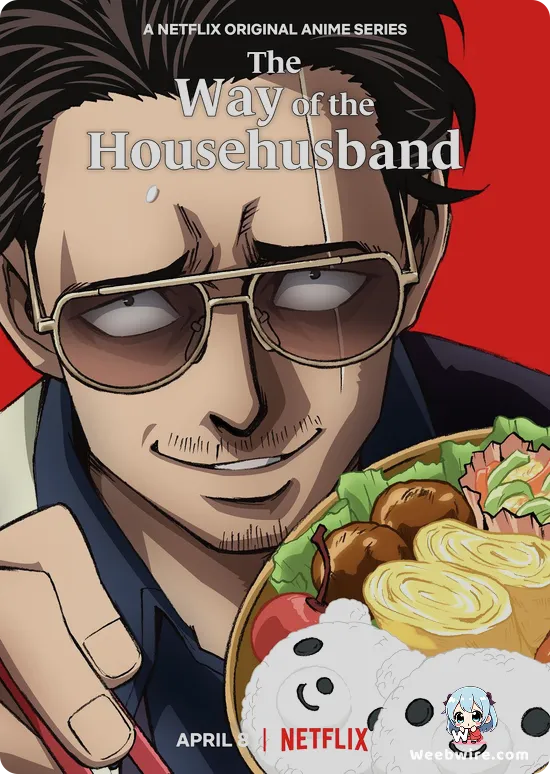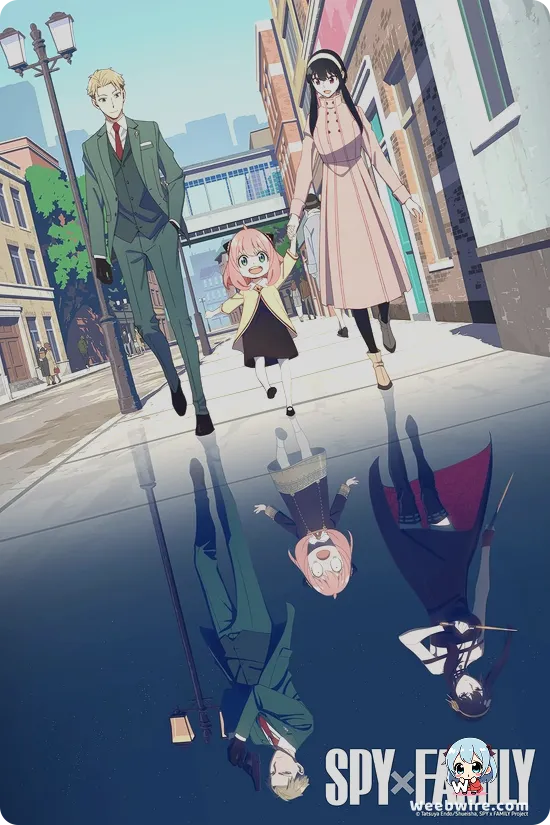

© J.C.Staffwww.netflix.com
Overview
Dive into the hilariously unconventional world of The Way of the Househusband, an anime series that masterfully adapts Kousuke Oono's celebrated manga. At its heart is Tatsu, once the most feared yakuza boss known as 'the Immortal Dragon,' whose name sent shivers down spines across the underworld. Yet, in a breathtaking twist of fate, Tatsu has shed his violent past, embracing a new, surprisingly serene identity: a devoted househusband. His days are now filled with the domestic arts—meticulously preparing bento boxes, navigating supermarket sales with warrior-like precision, and ensuring the spotless upkeep of his home for his career-driven wife, Miku. The series brilliantly thrives on the comedic dissonance between Tatsu's perpetually stern, menacing yakuza visage and his utterly mundane, often endearing household activities. Each episodic adventure paints a vivid picture of his earnest attempts at domestic perfection, often clashing with his ingrained gangster habits, leading to laugh-out-loud misunderstandings with bewildered neighbors, former associates, and even stray cats. Produced by J.C.Staff and launched as a Netflix original net animation in Spring 2021, the anime employs a distinctive motion comic-style animation, enhancing its deadpan humor and slice-of-life charm. Beyond the gags, it subtly explores profound themes of identity transformation, the quiet dignity of domestic labor, and a refreshing redefinition of masculinity, proving that true strength can be found in a perfectly folded laundry pile.
Opinion
As an anime aficionado, The Way of the Househusband presents a truly refreshing take on the slice-of-life genre, carving out a unique niche with its brilliantly simple yet profoundly effective premise. The animation, a deliberate motion-comic style from J.C.Staff, is undeniably a focal point of discussion. While some viewers might initially find its limited movement unconventional, it masterfully serves the show's deadpan humor, allowing the comedic timing and character expressions to shine without the need for fluid, action-packed sequences. This choice emphasizes the dialogue and the ironic juxtaposition of Tatsu's intimidating persona against mundane tasks, perfectly pacing the gags for maximum impact. Kazuya Nakai's voice work as Tatsu is nothing short of iconic; his deep, gravelly tones imbue every line, whether about laundry or a gang war, with an absurd gravitas that defines the show's comedic genius. Aoi Yuki as Miku and Yusuke Kobayashi as Masa also deliver excellent performances, adding layers to the supporting cast. Story pacing is swift, with each short episode delivering multiple vignettes that are easy to digest and consistently entertaining. While the episodic nature means character development for Tatsu is more about showcasing his established, hilarious new identity rather than a dramatic transformation, the series excels in thematic depth, subtly exploring the redefinition of masculinity and the quiet dedication within a partnership. It’s a delightful, laugh-out-loud experience that, despite its stylistic choices, offers a consistently engaging and heartwarming narrative.
Characters
Tatsu
Voice: Kazuya Nakai
Miku
Voice: Aoi Yuki
Masa
Voice: Yusuke Kobayashi
Credits
Studio
J.C.Staff
Cover Art
Kousuke Oono
Publisher
Shinchosha
Producers
Nippon TV, Netflix, J.C.Staff





